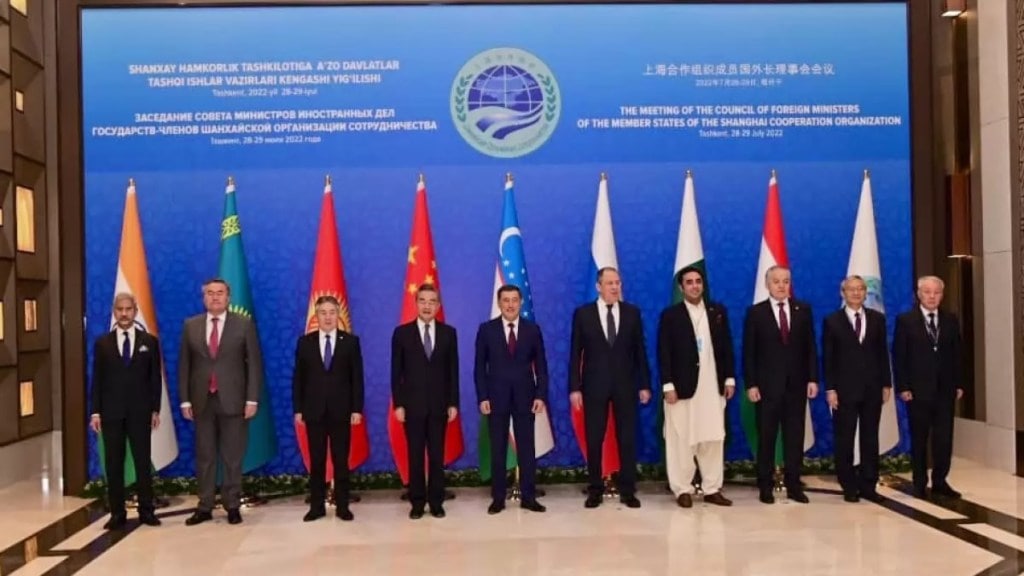India’s economic growth has expanded its global footprint compelling it to join several multilateral networks. In the last one and a half decade, India has become a member of four notable organisations: BRICS, the G20, the Quad and the Shanghai Organisation Corporation (SCO). The West leads two organisations, while the other two are non-Western. BRICS and the SCO should be viewed as a part of India’s attempt to expand multilateral outreach in the non-Western world.
As a host of two multilateral summits, the G20 and the SCO, New Delhi has an opportunity to project its own brand of multilateralism. It has begun to project itself as a leader of the Global South, but there are too many contestants and too much ambiguity.
“The core agenda took the backseat at the recently concluded SCO foreign ministers’ meeting, while emotional issues became the limelight. This is not to say that terrorism is not an important issue for India. Rather, India must respond to Pakistan’s baseless charges, but that should not be the focus of New Delhi at the SCO. China backs Pakistan at the SCO, and Pakistan cannot be pressured by this organisation,” observes a foreign policy expert.
“We need to devise our transcendental norms acceptable to our multilateral partners in the neighbourhood and beyond. India’s brand of multilateralism cannot be premised on Western liberal internationalism as hostile and undemocratic states surround it.
Second, it lacks the financial heft of China to pursue its own multilateralism,” states Prof Rajan Kumar, Centre for Russian and Central Asian Studies, School of International Studies, JNU.
Roadblocks
Sharing his views with Financial Express Online, he says: “India’s multilateral ambition encounters roadblocks created by Pakistan and China. China seeks to attract smaller neighbours with massive financial aid and offers of infrastructural projects. It has done it through its Belt and Road Initiative (BRI) projects and other networks.
Pakistan, on the other hand, dampens India’s multilateral ambition by raising bilateral issues. The recent SCO foreign ministers’ meeting at Goa encountered a similar fate. Pakistan raised the issue of Kashmir, and India spent considerable energy in countering those charges. Charges and counter-charges between the two states hijacked the real agenda of the last summit. New Delhi has joined the SCO not merely to counter the charges of Pakistan but to expand its footprint in Eurasia. The region of Eurasia is critical for India’s security and economic expansion. This region is indispensable if India has to connect to the West through the land route.”
Way forward
Instead, according to Prof Rajan, the SCO should become a bridge for expanding India’s footprints in Central Asia. “New Delhi ought to stress the centrality of Central Asia in the SCO. It can assuage the fears of Central Asian states, which are terrified after the Russian intervention in Ukraine. It should reiterate territorial integrity as the core principle of the organisation. Further, it should work on concrete plans to develop physical, digital and cultural connectivity in Eurasia. Because of sanctions on Iran and Russia, funding infrastructure projects would be a challenge in the future. The SCO can evolve mechanisms to bypass such sanctions. Irrespective of what critics think of the SCO, it remains a crucial forum for India, and its importance will grow further in the coming years.”
“Alternate institutions are created when some states are unsatisfied with existing organisations. In an attempt to change the status quo, they adopt several strategies ranging from exit and vocal criticism to the creation of new institutions,” Prof Rajan Kumar opines.
In international politics, this is referred to as ‘regime-shifting’ or ‘competitive regime creation’. The BRICS and the SCO should be viewed as attempts of ‘contested multilateralism’, a term used by scholar Robert Keohane.
India & Multilateralism
According to Prof Rajan, “India is yet to evolve its strategy of multilateralism. It needs more economic and diplomatic resources to develop its own brand of multilateralism successfully. In most cases, it has joined the institution created and spearheaded by other countries.”
In his opinion, being a liberal democratic state, India adheres to the principles of Western multilateralism but functions like a dissatisfied state. “It faces several limitations in the UN, IMF, World Bank and the WTO. Its strategy is not to subvert Western institutions but to make them more accountable and inclusive.
It finds itself closer to Russia and China on issues of sovereignty, multi-polarity and non-intervention. That explains why India is a member of organisations such as BRICS and the SCO.”

